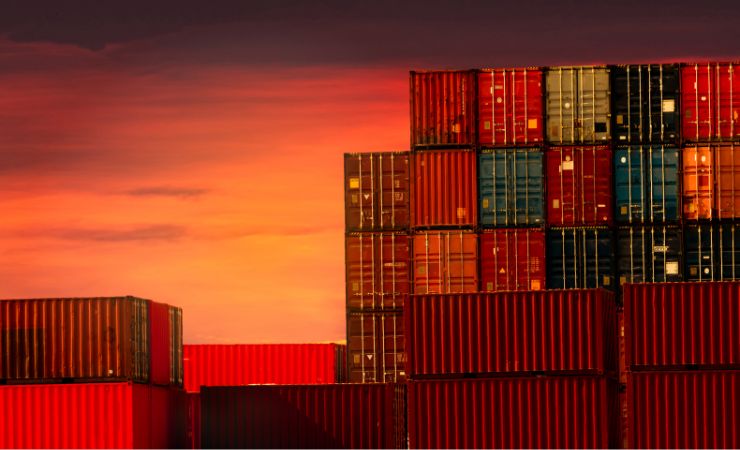Longshoremen, also known as dockworkers, are individuals whose primary job duty is to load and unload shipping containers. Longshoremen in the San Diego area and all along the California coast are responsible for loading ships for transport across the Pacific and unloading ships coming in from overseas. Whatever type of work you perform as a longshoreman in San Diego, you must acknowledge the inherent risks of this type of work, and you should also know what to do when a work-related injury occurs. Speaking with a San Diego Longshoreman Injury Attorney can be an essential first step in understanding your legal options and protecting your rights after an accident.
Almost all workers across all industries in California are covered by their employers’ workers’ compensation insurance. When workplace injuries occur, victims can report their injuries to their supervisors and request the materials needed to file their claims for workers’ compensation benefits. While the state enforces relatively strict workers’ compensation rules for employers, most of the longshoremen working in the San Diego area are covered by a separate set of protections enforced at the federal level.

The Longshore and Harbor Workers Compensation Act (LHWCA) exists to provide workers’ compensation benefits to longshoremen working in American shipyards and ports. Essentially, longshoremen qualify as federal workers, and some injured longshoremen may wonder whether state-level workers’ compensation benefits or LHWCA benefits would be more beneficial to their recoveries. For most of these individuals, the latter will offer more substantial compensation.
The Mitchell Law Corporation has helped many past clients in San Diego and surrounding communities with their work-related injury claims. Our team has substantial workers’ compensation experience in San Diego, but we can also handle claims that fall under specific federal employment laws like the LHWCA. Many injured dockworkers face tremendous uncertainty and distress when it comes to calculating their losses and the economic fallout of their work-related injuries. Our team can help you determine the best available path to recovery in your situation and guide you through whatever proceedings are necessary to secure the compensation you need to recover.
To qualify for coverage under the LHWCA after a longshore injury, the claimant must pass the “status test” and “situs test” to prove eligibility. The status test pertains to the nature of the claimant’s job duties. Longshoremen, dockworkers, and all other individuals who participate in the loading and unloading of cargo ships are protected by the LHWCA. This protection extends to support staff — forklift operators, vehicle mechanics, and any other individuals performing maritime work for their employer. The situs test pertains to the location of the claimant’s work duties, and this is more rigid. To qualify for benefits under the LHWCA, the claimant must work “on, near, or adjacent to navigable waters.”
Many longshoremen working in the San Diego area have physically demanding work duties and face an inherently dangerous work environment. While the shipping yards and ports of the state and across the country are generally managed very carefully, mistakes and accidents can happen at any time in various ways, sometimes with devastating consequences. Some of the most commonly reported workplace injuries from longshoremen in the state include:
This is not a complete list of all the possible injuries a longshoreman could sustain at work. Some accidents result in multiple injuries, and some victims will face lifelong disabilities and medical complications that severely diminish their quality of life.
The compensation available to an injured longshoreman in San Diego under the LHWCA is similar to the benefits an employer’s workers’ compensation insurance policy would usually provide an injured worker, but the LHWCA offers more expansive benefits. The injured worker can expect full compensation for all the medical treatment they require, including any transportation costs they incur to receive treatment. For example, if their injury leaves them unable to drive, the LHWCA will cover taxi services or other transportation fees so they can go to medical appointments whenever necessary.
Disability benefits are also available to injured longshoremen in San Diego. These benefits are differentiated into “partial” and “total” disability designations. The former applies when an injured longshoreman can still work after their injury but faces diminished earning capacity. The latter applies when a claimant cannot work at all until they recover. Further, disability benefits are also differentiated into “temporary” or “permanent” designations. Most claimants qualify to receive temporary disability benefits until they reach maximum medical improvement. However, if an injured longshoreman has developed a permanent disability that leaves them completely unable to work for the foreseeable future, they may qualify to receive permanent disability benefits.
The LHWCA can also compensate a claimant for vocational rehabilitation and/or new job training if returning to their previous job is no longer an option due to their injuries. Ultimately, you could potentially secure more benefits after a longshore injury than you initially expected if you have the right attorney handling your case.
The Mitchell Law Corporation has extensive professional experience handling a variety of workplace injury claims on behalf of clients across Southern California. If you need a San Diego longshore injury attorney you can trust to help you recover from your recent workplace injury, our team will provide ongoing guidance through all phases of your case.
Q: Do Longshoremen Receive Benefits From Work?
A: Almost all longshoremen working in the state are covered by the LHWCA, which generally offers better benefits than most employer-provided workers’ compensation insurance. However, anyone exempt under the LHWCA is likely still covered under their employer’s insurance policy due to the state’s strict employer requirements regarding workers’ compensation insurance.
Q: Are Longshoremen Considered Federal Employees?
A: Longshoremen are protected at the federal level by the LHWCA, but this does not necessarily make them federal employees. The LHWCA is federal workers’ compensation protection for private sector maritime workers, and a separate law called the Defense Base Act applies to dock workers on American military installations and naval bases. However, civilians employed directly by the federal government do qualify as federal employees.
Q: What Is a Standard Longshoreman Work Schedule?
A: Working as a longshoreman in any state port can be incredibly demanding, and the shipping operations that unfold in the San Diego area require dockworkers to be loading and unloading ships 24 hours a day, seven days a week. Longshoremen unions typically dictate worker schedules and ensure workers are protected from overworking and receive fair pay for their work.
Q: What Does the US LHWCA Provide?
A: The LHWCA can provide a wide range of benefits to an injured longshoreman. When you have an experienced San Diego longshore injury attorney representing your case, they can help you secure compensation for your medical expenses and the income you are unable to earn during your recovery.
Q: How Much Does a San Diego Longshore Injury Attorney Cost to Hire?
A: Most injured longshoremen in the San Diego area will not have the financial flexibility to pay for an expensive attorney’s hourly rate. The Mitchell Law Corporation keeps our legal representation accessible to the injured workers who need it most with a contingency fee policy. Our client pays no upfront legal fees and does not owe any fee at all if we fail to secure compensation for their claim. When we win a client’s case, the contingency fee is a flat percentage of the client’s final compensation.
The right legal team handling your case will make a tremendous difference in your recovery after any longshore work injury in the San Diego area. The Mitchell Law Corporation has the experience and resources necessary to provide comprehensive and client-focused legal representation for any injured longshoreman in the area. If you’re ready to discuss your legal options with an experienced San Diego longshore injury attorney, contact the Mitchell Law Corporation today and schedule a consultation with our team.







